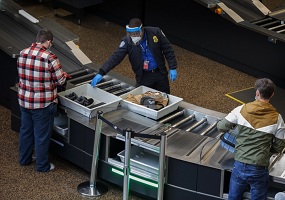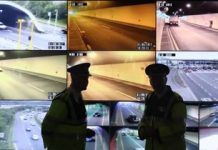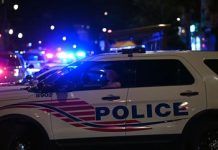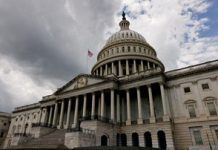A controversial U.S. program to monitor “high-risk” passengers at airports and on domestic flights has been poorly managed, with some fliers continuing to be monitored after they were no longer considered a risk, a government audit found.
The Transportation Security Administration failed to “plan, implement, and manage the Quiet Skies program to meet the program’s mission of mitigating the threat to commercial aviation,” the Office of Inspector General for the Department of Homeland Security said in its audit, released.
The TSA agreed with some of the recommendations to improve oversight to the Quiet Skies program but rejected the conclusion that the agency failed to follow its own guidelines and that it has not shown that the program makes air travel safer. In a letter filed in response to the audit, TSA Administrator David Pekoske said 58 travelers who were initially monitored under the Quiet Skies program from 2014 to 2020 were eventually labeled as “known or suspected terrorists” and added to the government’s no-fly terrorist watch list.
The program was launched in 2012 but was first reported by the Boston Globe in 2018. An audit was launched shortly after the program was publicized. The TSA has described the program as an effort to prevent terrorism by conducting extra screening at TSA checkpoints of U.S. citizens who have broken no laws but raise red flags because of their travel patterns.
Through an automated system, airlines add a special coding to the boarding passes of passengers who are on the Quiet Skies list so TSA officers can pull those travelers aside for extra screening at security checkpoints.
In addition, federal air marshals who monitor the travelers board the same flight and keep notes if those passengers are fidgeting, sweating, trembling, staring or exhibiting other suspicious behavior, according to the TSA. The Quiet Skies program operates separately from the federal government watch list that is intended to monitor known or suspected terrorists.
The audit said the program failed to adopt procedures to measure if the program has been effective at keeping the skies safe and recommended creating a central office to monitor and manage the program, with quarterly reports and regular performance goals. “TSA did not ensure the oversight meetings were documented, as required, or update its policies and procedures to reflect program operations,” the audit said. The audit has been redacted to remove a description of how travelers are cleared from the Quiet Skies list, but the audit said software glitches in 2017 and 2018 resulted in people remaining on the list long after they were no longer considered a risk.








